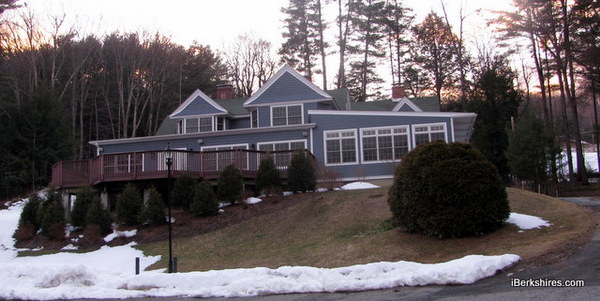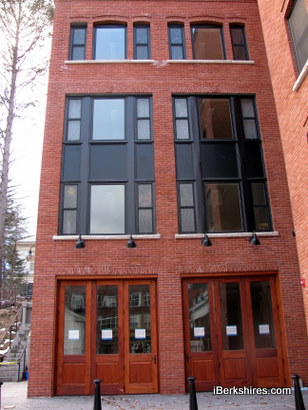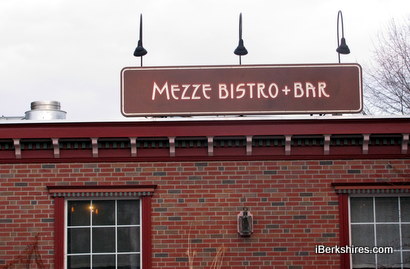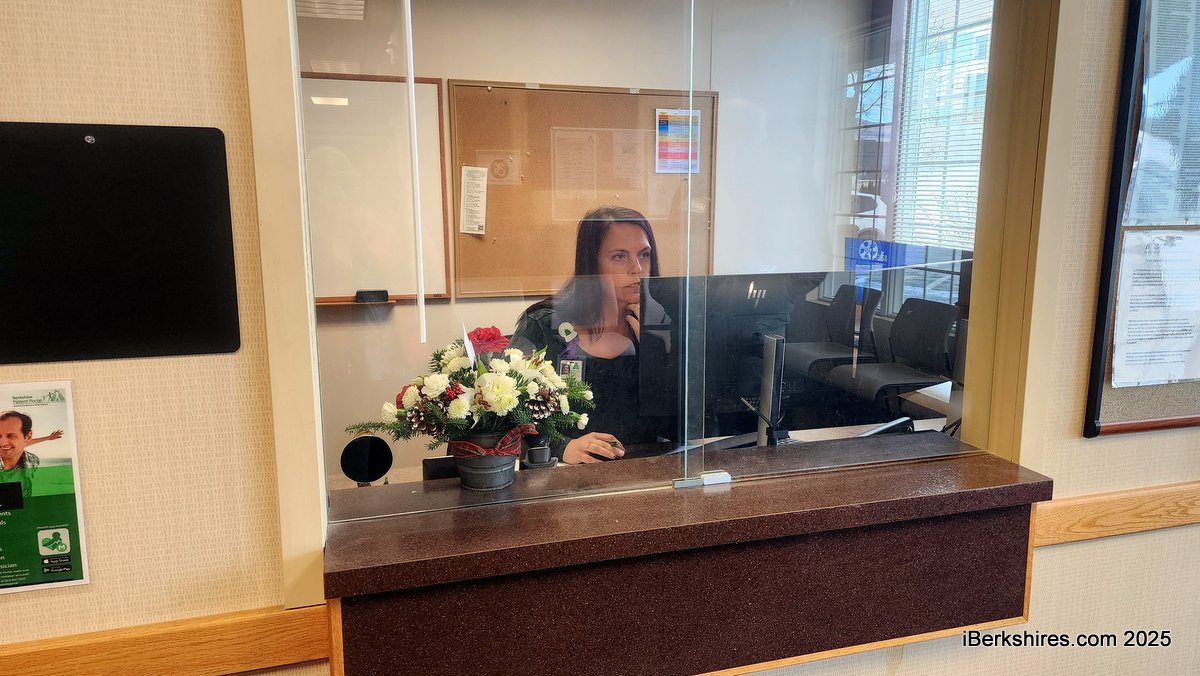
Williamstown Board Paves Way for Mezze Move, New Eateries
 The Purple Pub will reopen with a new owner in Mark Paresky's new Spring Street building this spring. |
Speaking on behalf of his client Mezze Inc., attorney Sherwood Guernsey said the popular eatery at 16 Water St. plans to relocate later this spring, although the precise timing has yet to be worked out. He requested the Selectmen approve language that would allow the license transfer to take effect once Mezze's owners have written the town informing them of when it will take place, to ensure there is no gap in coverage.
Mezze co-owner Nancy Thomas said the move would enable the company to join the restaurant and Mezze Catering under one roof. It will include outdoor seating on a patio, and some "edible landscaping" to fit in with the restaurant's commitment to using locally grown produce.
"I'd like to say you'll get more Mezze," Thomas said. "We're going to have land for the first time."
She said the company has no plans "in the 2010 period" to use the six guest rooms that are available on the site as a hotel.
Mezze, which is co-owned by entrepreneur Bo Peabody, has operated at its current location near the center of town since 2001. It moved there shortly after its previous location just down the street burned down.
The location at 777 Cold Spring Road operated for decades as Le Jardin, and was sold to Jae Chung and partners in 2007. For a year, Jae's Inn operated there, until in the wake of a dispute among the partners, Chung moved it back to its original location in North Adams (where it closed last December). The property was purchased at a foreclosure auction by the owners of Mezze last spring for $575,000.
 Mezze has been on Water Street for nine years. |
The Selectmen asked several questions regarding the unusual arrangement of having two places under one license. Although the two will share some kitchen and storage spaces, for patrons they will be separate locations divided by a public space not covered by the license.
Selectmen Chairman Tom Costley explained that the owners need to make the arrangement clear to patrons. "It won't seem reasonable to some people, but it's what you have to do," he said.
Selectwoman Jane Allen made it clear to Ferioli that the town expects complete compliance with the law about serving alcohol to minors. She said other managers who had arrived in Williamstown with no prior experience in a college town have faced a list of unexpected challenges, including an astonishing number of fake IDs, and the way that they weren't prepared "for the testing of new owners."
"You need to establish a reputation for being tough," she warned.
Also at Monday's meeting:
► The board approved a request for an awning at "That's a Wrap," the new sandwich shop scheduled to open sometime around April 1 in the former Helen's Place at 60 Spring Street.
► Christopher Winters and Patrick Dunlavey of the Planning Board outlined six bylaw changes the board would like to present to town meeting in May for approval. Several of them are housekeeping changes to clean up some language in the code, including one that gives the Zoning Board of Appeals the ability to make discretionary decisions on certain kinds of variances.
► Another proposal would remove the requirement that businesses on Spring Street provide off-street parking. "We're sacrificing the requirement for offsite parking ... in favor of the kind of development we as a community in our Master Plan have said we want," Winters said. Another would allow overnight parking of vehicles with a payload capacity of 1.5 tons. The current rule, which allows vehicles with a capacity of three-quarters of a ton, was described as out of date and does not account for some of today's vehicles.
















